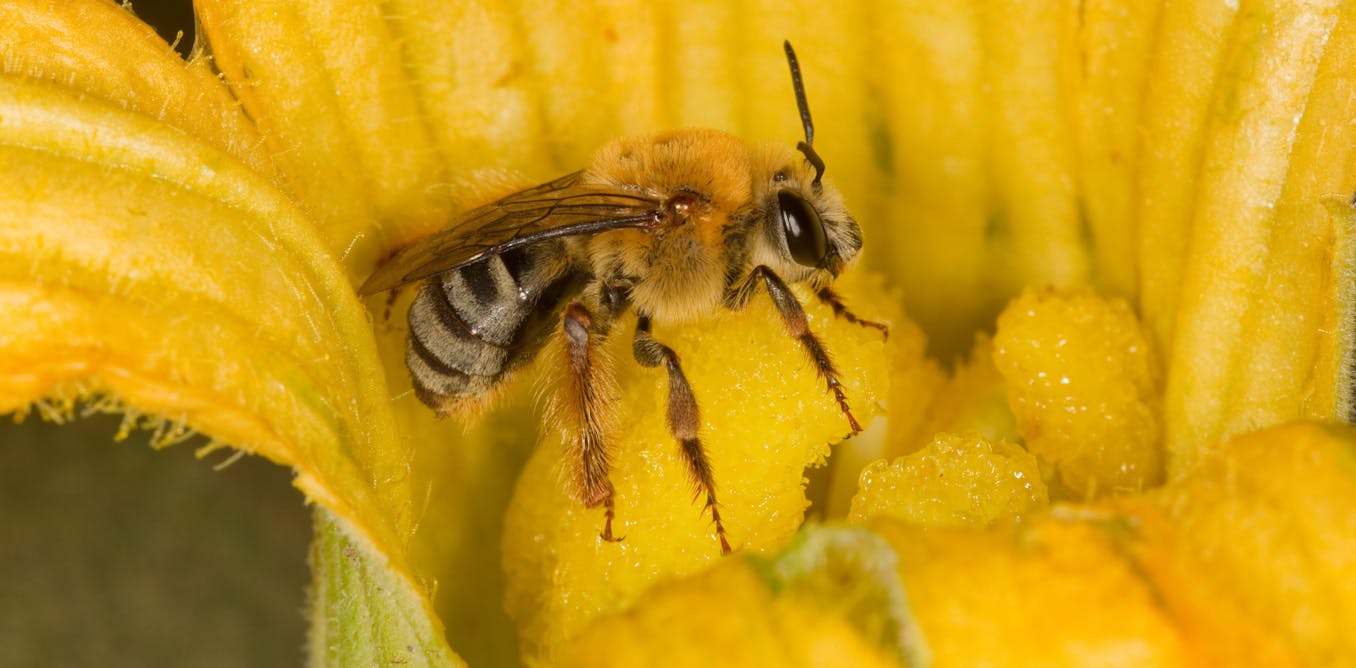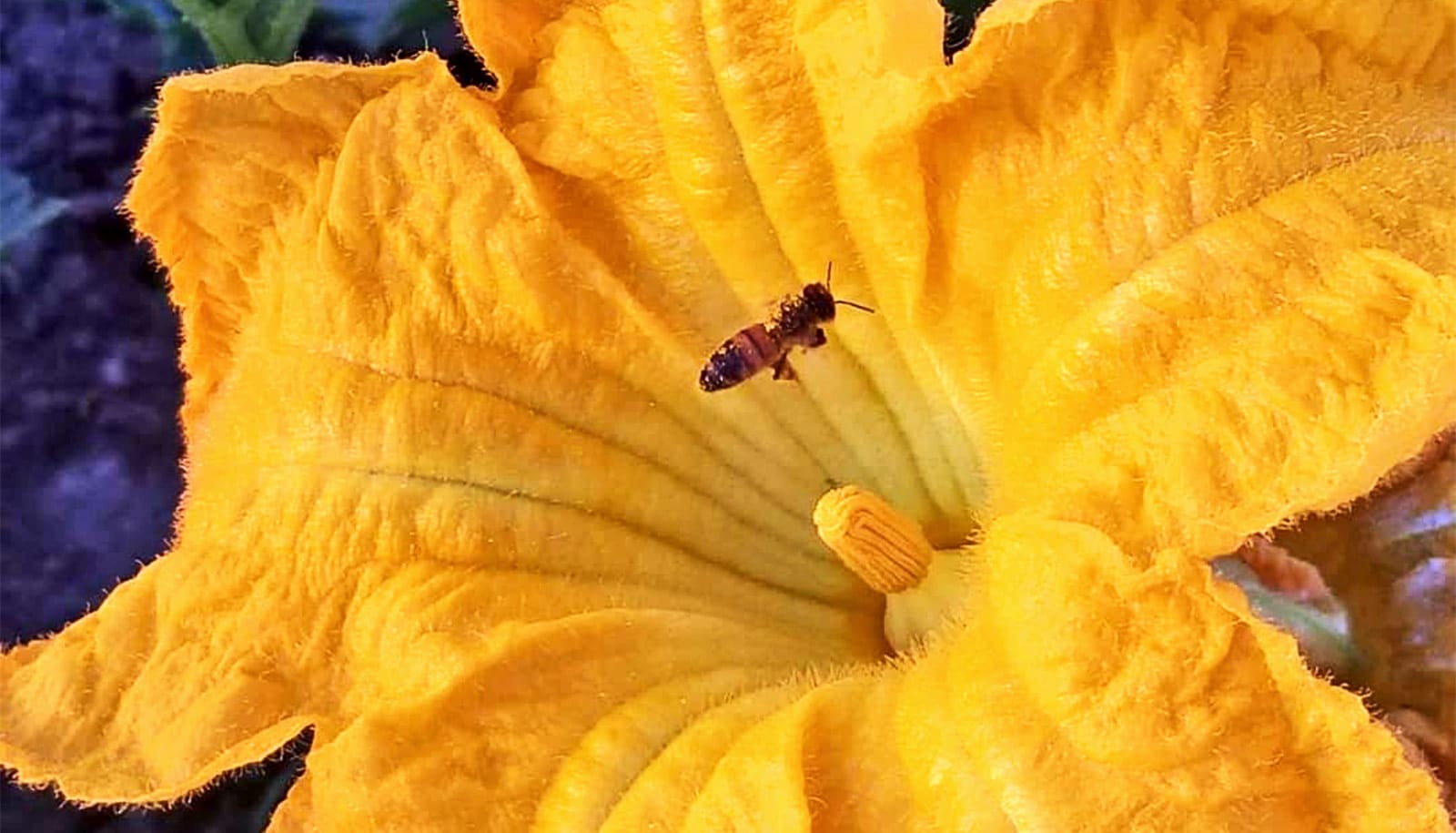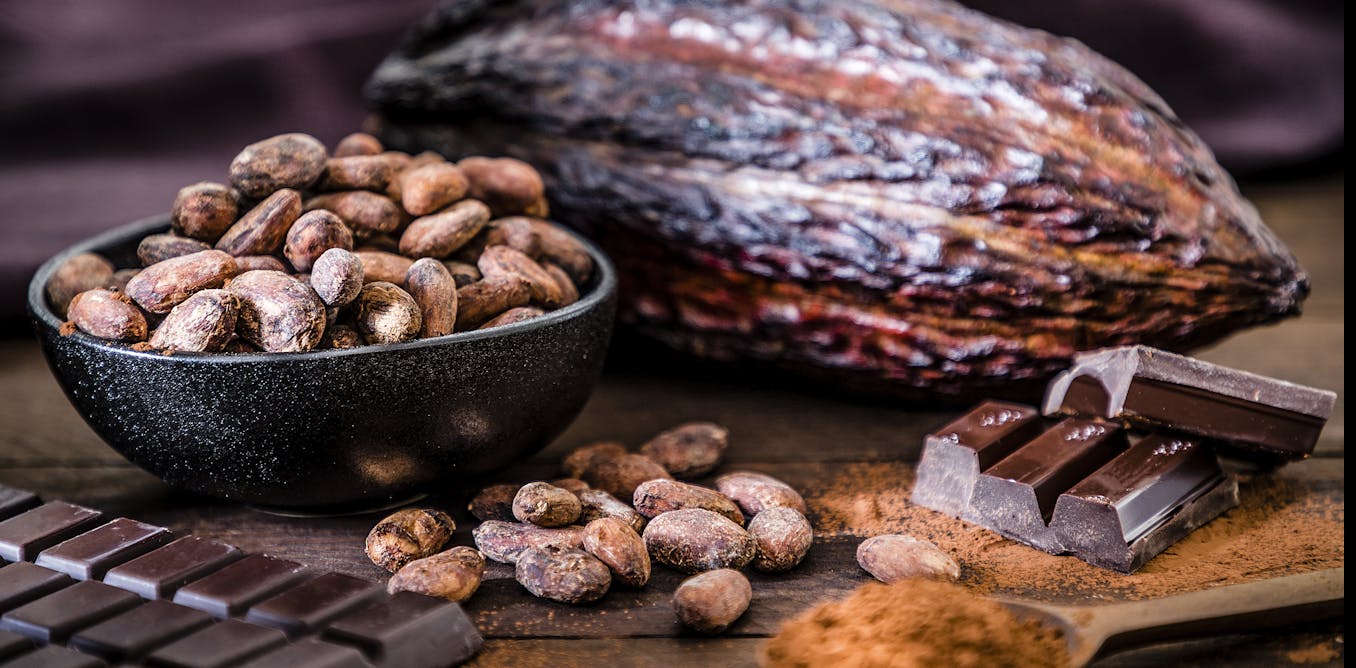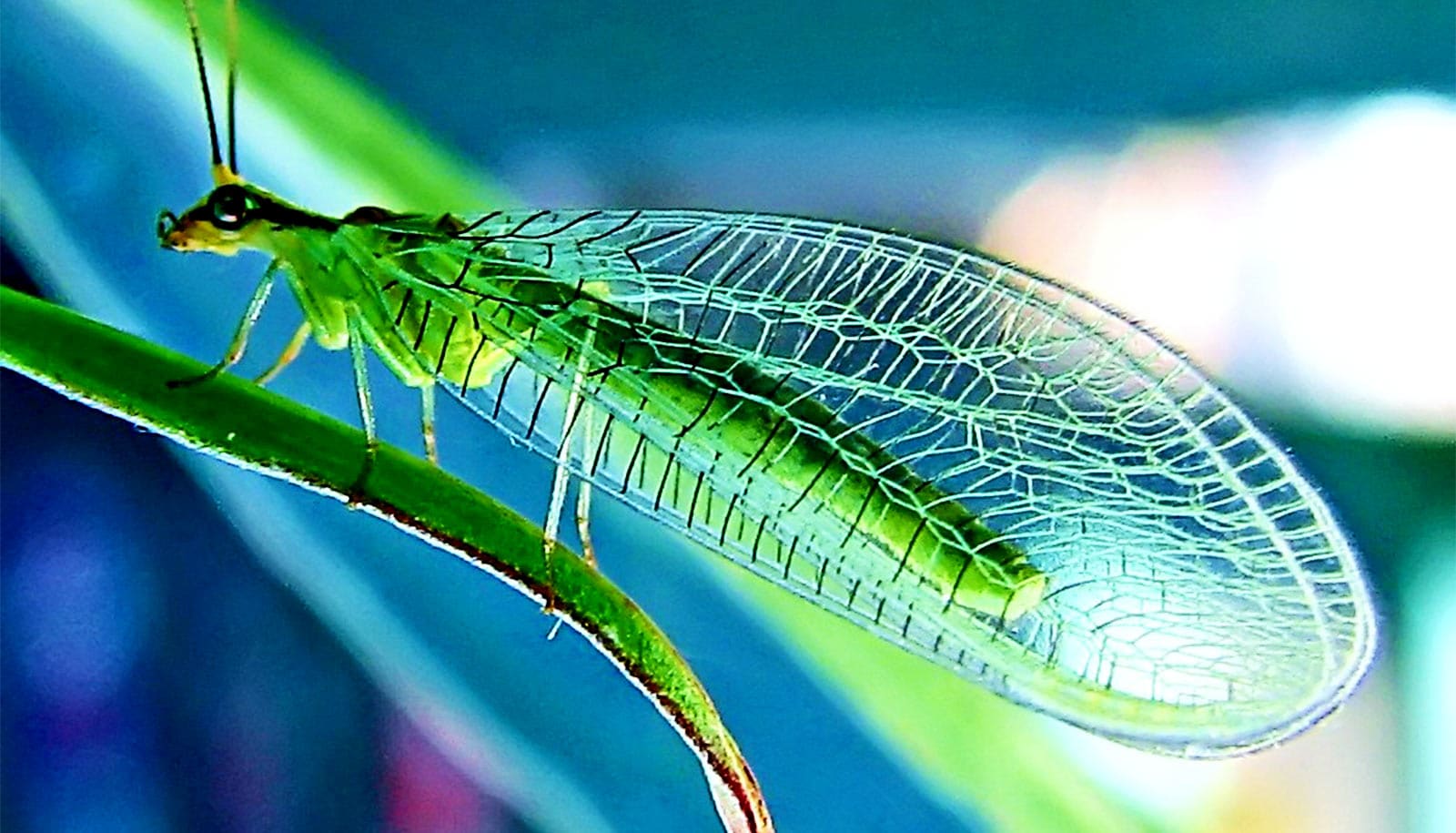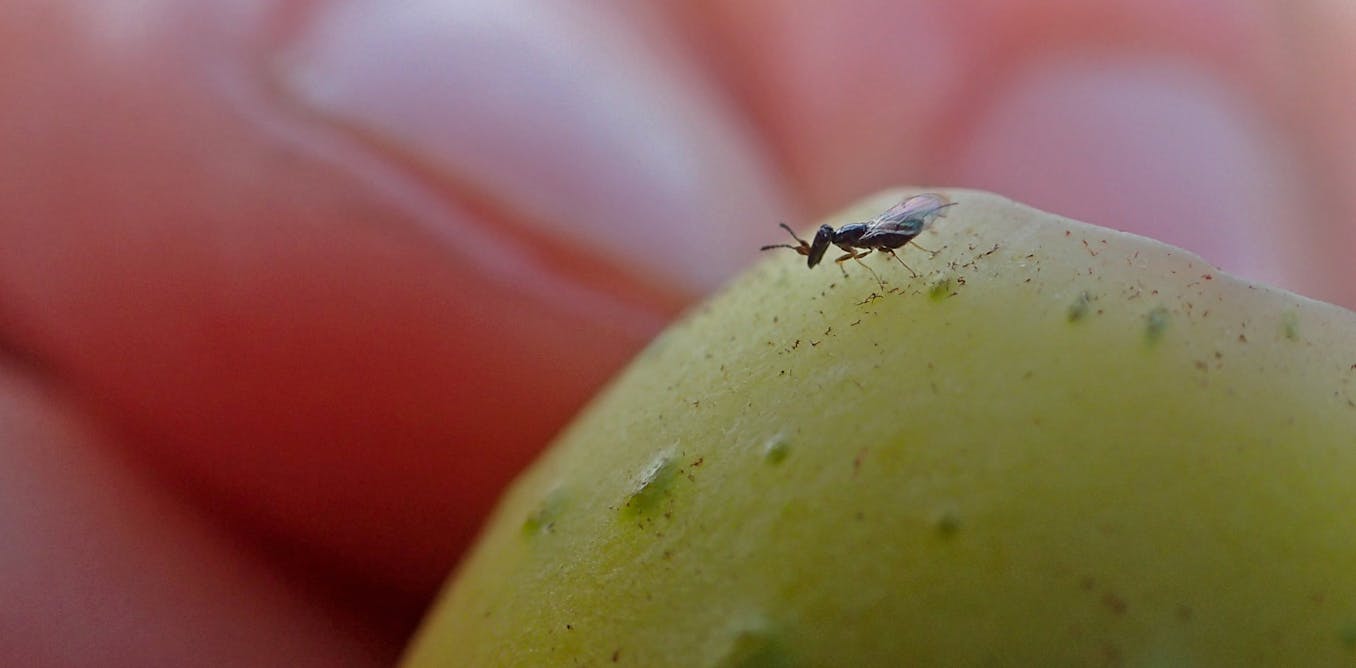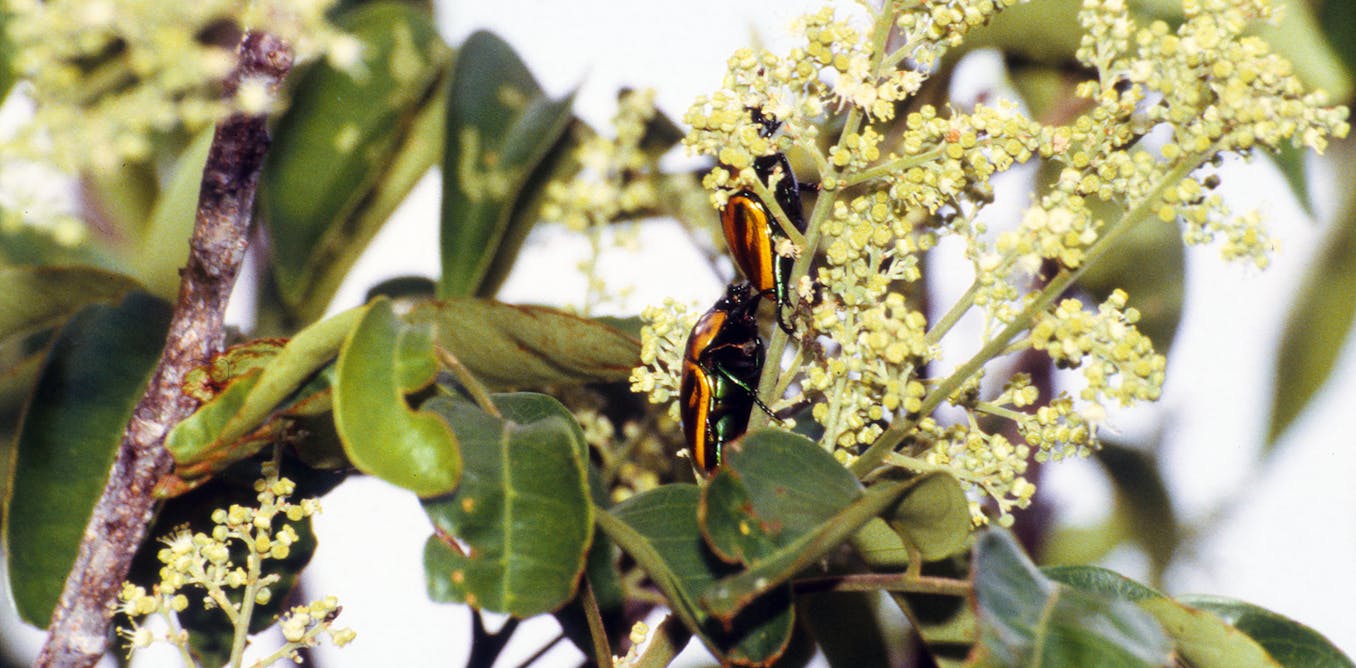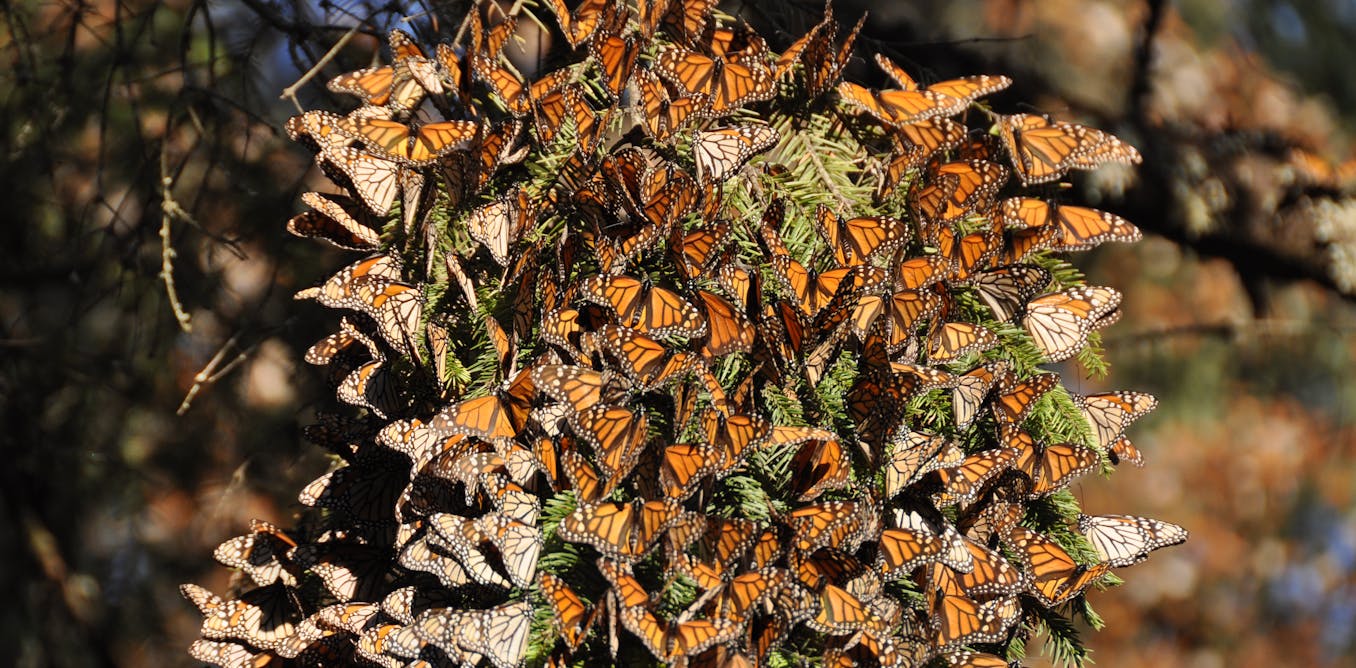A common soil pesticide cut wild bee reproduction by 89% – here's why scientists are worried
EU-banned pesticides could not only threaten wild bees where they eat, but where they sleep too.
March 2, 2021 • ~6 min
Tiny cacao flowers and fickle midges are part of a pollination puzzle that limits chocolate production
Entomologists wonder if the insects currently pollinating farmed cacao are the right ones for the task.
Feb. 10, 2021 • ~6 min
Pollinators: neonicotinoid pesticides stop bees and flies from getting a good night's sleep
Chemicals banned in the EU were recently granted an exemption for limited use in the UK.
Jan. 21, 2021 • ~6 min
Figs show that nonnative species can invade ecosystems by forming unexpected partnerships
As invasive species transform the world, frontline agencies take solace that species needing unique partners can’t invade alone. A new study on figs shows they may find new partners to invade anyway.
Jan. 19, 2021 • ~9 min
Tiny treetop flowers foster incredible beetle biodiversity
In the Amazon, beetles and flowering trees have developed a tight bond. Hundreds of beetle species thrive off of and pollinate blossoms, helping to maintain some of the highest biodiversity on Earth.
Dec. 3, 2020 • ~6 min
Monarch butterflies' spectacular migration is at risk – an ambitious new plan aims to help save it
Can a plan that brings together government and private landowners create enough habitat for monarch butterflies?
Sept. 18, 2020 • ~9 min
/
9


